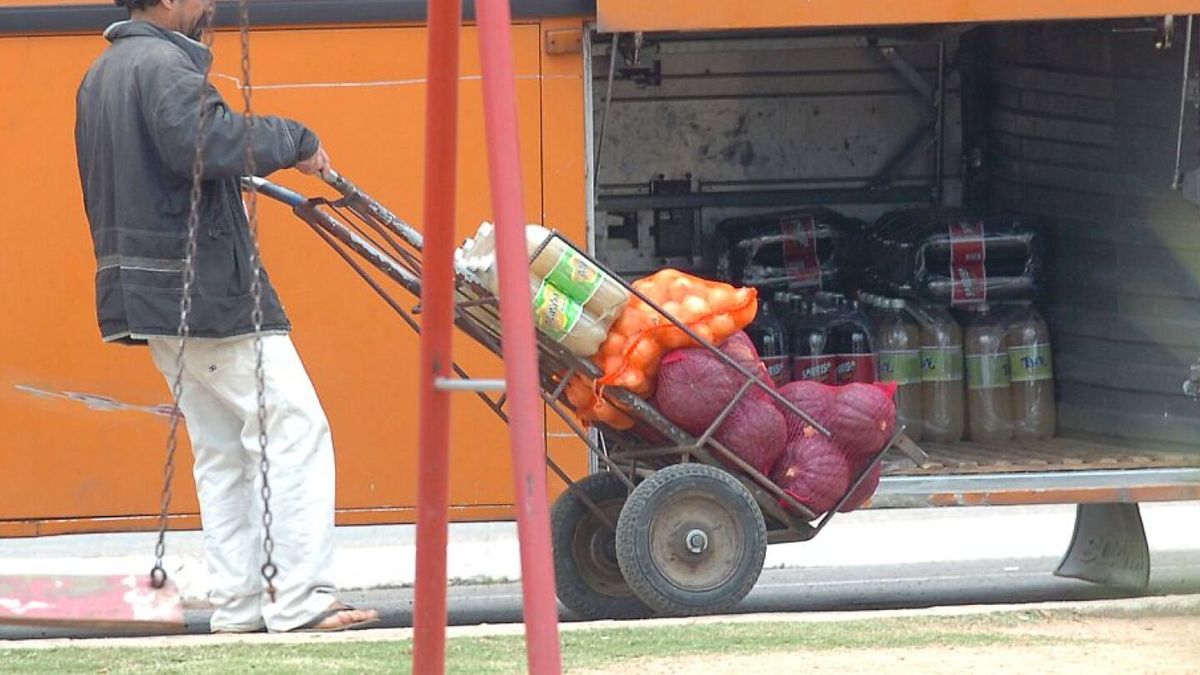The government seeks to exonerate the VAT in products sold in shops on the border of Uruguay with the aim of “reducing the difference with Argentina prices”, a problem that is deepened by the economic situation of the neighboring country and that generates a critical situation not only on the coast but also at a fiscal level throughout the national territory.
The initiative is an additive incorporated into the bill of Accountability that Finance Commission integrated with Budget of the Senate voted yesterday in the Parliament —and whose final approval will take place in plenary next Tuesday. Proposed by the Broad Front, The objective is to stimulate the Comercial activity in the border departments through tax benefits that allow offering more competitive prices in relation to Argentine values—just a few kilometers away—which almost daily drive a exodus of Uruguayans towards the neighboring country.
In this regard, the senator and leader of Town meeting —which in 2020 presented a project with similar characteristics, even though the situation generated by the exchange difference It wasn’t as serious as it is now. Guido Manini Ríosexplained to Telemundo that “it is about empowering the Executive Branch, not ordering, because it has the private initiative, to remove the VAT from the products sold by border trade, particularly with Argentina, given the situation that we all know.”
“The proposal was made by the Frente Amplio and we support it because it coincides 100% with our bill presented three years ago, when the bridges were closed due to the pandemic. At that time, we proposed that products sold on this side of the border be exempt from all taxes, to reduce the difference in the gap that clearly existed with Argentina. Now that it is proposed as a additive in Accountabilitywe would be incoherent if we do not support it,” he added.
With the VAT exemption, what is sought is narrow the price gap existing between one side and the other of the Silver river —structural difference that is deepened by the devaluation and escalation of the blue dollar or parallel dollar in Argentina—; and thus also hold the employment of the coast, the most affected in the entire country.
Likewise, the measure takes into account the particular tax situation national, signed by a drop in collection from the diversion of consumption to the neighboring country. “Today those products are not sold, which means that VAT is not being collectedit is not that the Uruguayan government is going to lose revenue, it is not being collected because everything is being bought in Argentina. With this, VAT is still not collected, but jobs in local commerce are ensured,” said Manini Ríos.
The government is already thinking about working on the exchange rate difference together with the new Argentine management
In Argentina There is less than a month left until the general elections are held, and although preliminary polls indicate that there would be a runoff in November, the government of Luis Lacalle Pou He is already preparing to sit at the table with the new administration, regardless of political affiliation. The main topic of discussion would be, precisely, the exchange difference between both countries, which seriously affects Uruguay.
This was confirmed by the secretary of the Presidency, Álvaro Delgado —who is emerging, in turn, as a pre-candidate for the National Party for next year’s elections—who assured that they will seek to establish a dialogue on joint measures between both nations to address this problem that no longer only affects the merchants of the coastbut also to different sectors of the national economy.
Delgado explained in a press conference that the value of the dollar in Argentina “it is incremental” and that it is “very difficult to follow that process”, since “every day it surprises us with some new news.” “We are just a few days away from an Argentine election, obviously after that election we will have to reevaluate based on who wins and what proposals it makes,” said the Secretary of State.
Along the same lines, the Secretary of the Presidency expressed that he believes that the Uruguayan government should “try to exchange with the new elected Argentine government”, since “regardless of who wins”, the “responsibility” of a government is to interact “coordinate Actions”.
Source: Ambito




